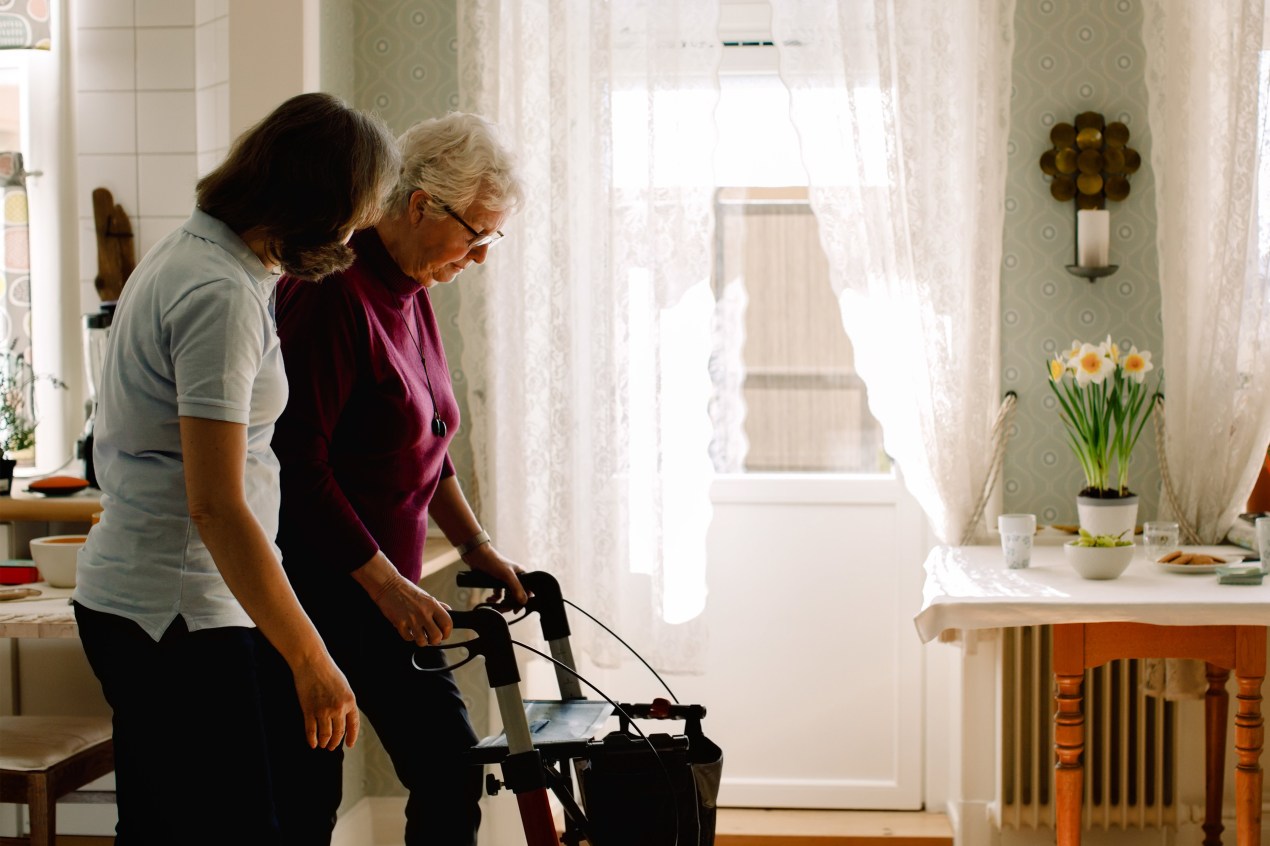Exactly How to Offer Individualized and significant Mental deterioration Treatment
The stipulation of significant and customized dementia care calls for a nuanced understanding of each individual's special history and preferences. Treatment approaches need to be customized to involve the person in means that reverberate with their previous experiences, thereby cultivating psychological links and boosting general health.
Comprehending Mental Deterioration Uniqueness

Treatment service providers must assess cognitive capacities, psychological states, and behavior patterns to create tailored treatment strategies. This might include adjusting interaction designs, employing acquainted regimens, and using significant tasks that resonate with the individual's past experiences. Involving a person with an enthusiasm for songs through music activities may evoke positive memories and improve emotional well-being.
In addition, comprehending individuality fosters a thoughtful method that values the dignity and freedom of those coping with dementia. It encourages caretakers to listen proactively, observe behavioral cues, and continue to be flexible in their caregiving strategies (dementia care charlotte). By prioritizing originality, caretakers can not just enhance the lifestyle for those with mental deterioration yet also construct a more profound understanding of their distinct point of views, inevitably leading to more empathetic and effective care
Structure Trust and Relationship
Developing trust and relationship is basic in dementia treatment, as it produces a risk-free and supportive environment for people influenced by the problem. Building these connections calls for regular, thoughtful communications that prioritize the demands and feelings of the person. Caretakers need to come close to communications with compassion, acknowledging the special challenges dealt with by those with dementia, including amnesia, complication, and psychological distress.
Efficient interaction is crucial in this process. Caretakers should utilize clear, basic language and non-verbal cues to convey understanding and assistance. Active paying attention shows respect and validation, enabling individuals to share themselves without worry of judgment. In addition, preserving a calm disposition can assist relieve stress and anxiety, promoting a feeling of protection.
Experience with everyday activities and caretakers advertises a feeling of security, enabling people to feel even more at simplicity. By doing so, caregivers strengthen the person's identification, advertising dignity and regard, eventually leading to stronger, much more purposeful relationships in the context of dementia care.
Tailoring Activities and Engagement
Engaging individuals with dementia with customized activities can considerably enhance their lifestyle and foster a much deeper connection between caretakers and those in their treatment. Personalization is necessary, as it acknowledges the distinct backgrounds, interests, and capabilities of each person. Tasks ought to be designed to stimulate cognitive features, advertise physical movement, and motivate social communication, all while remaining delightful and fulfilling.
To customize activities successfully, it is essential to evaluate the individual's choices and cognitive abilities. Some may discover happiness in gardening, while others might appreciate songs or art. Straightforward, acquainted jobs can stimulate positive memories and offer a feeling of success. In addition, incorporating aspects of regimen can use comfort and stability, enabling individuals to engage with tasks a lot more confidently.
Caretakers can improve engagement by taking part alongside the people, promoting an interactive and supportive environment. It is additionally important to continue to be adaptive and adaptable, changing tasks as needed based upon the person's power levels and mood. Eventually, meaningful interaction through tailored activities not only boosts individuals with mental deterioration however also enriches the caretaker relationship, advertising mutual pleasure and understanding.
Effective Interaction Methods
Reliable interaction is vital in dementia care, as it promotes a sense of link and understanding in between caregivers and individuals experiencing cognitive decline. Employing efficient interaction strategies can substantially boost the top quality of communications and minimize irritation for both events.
To start with, making use of simple, clear language is essential. Familiar words and brief sentences aid people understand and react much better. Furthermore, keeping a tranquility and positive tone can create a comforting setting, which read this article is essential for people that may really feel baffled or anxious.
Non-verbal communication plays a considerable duty. Caregivers should pay focus to body movement, facial expressions, and gestures, as these signs can typically communicate more than words - memory care charlotte. Establishing eye call and using mild touch can additionally strengthen connections and share empathy
Energetic listening is one more vital component. Caregivers need to listen, permitting individuals to share themselves fully, also if their speech is uncertain or fragmented. This lionizes and motivates extra open communication.
Finally, confirming experiences and feelings is vital. Recognizing feelings, no matter their basis in reality, can supply convenience and enhance the caregiver-individual partnership, promoting a more supportive atmosphere.
Supporting Family Involvement
Household participation plays a considerable duty in the total treatment and support of individuals with dementia. Engaging household participants develops a collaborative environment that improves the top quality of care, fosters emotional links, and makes certain that the one-of-a-kind demands of the person are met. Family participants often have important insights right into the person's background, preferences, and actions, which can be essential in establishing personalized treatment techniques.

Moreover, member of the family can be encouraged to join daily care tasks, such as participating in significant discussions or assisting with familiar regimens. This not just helps endure the person's feeling of identification but also strengthens domestic bonds. Inevitably, by cultivating a comprehensive approach that values family contributions, care suppliers can boost the total experience for both people with mental deterioration and their loved ones.
Final Thought
To conclude, delivering personalized and meaningful dementia treatment requires a comprehensive understanding of each person's one-of-a-kind history and preferences. Establishing trust fund and relationship with compassionate interactions is essential for developing a risk-free environment. Customizing activities to resonate with personal rate of interests enhances psychological wellness and promotes self-respect. Efficient communication methods additionally sustain this procedure, while actively Check Out Your URL involving relative enhances the caregiving experience and cultivates deeper links. Jointly, these methods contribute to improved lifestyle for individuals with dementia.
The provision of significant and individualized dementia care calls for a nuanced understanding of each individual's distinct background and choices. By doing so, caretakers enhance the person's identification, advertising self-respect and respect, eventually leading to stronger, much more meaningful partnerships in the context of mental deterioration treatment.
Engaging individuals with mental deterioration via tailored tasks can significantly boost their top quality of life and cultivate a much deeper link between caregivers and those Click Here in their treatment.Household involvement plays a considerable role in the total care and assistance of people with dementia. Ultimately, by fostering a comprehensive technique that values family contributions, treatment service providers can enhance the general experience for both individuals with mental deterioration and their enjoyed ones.